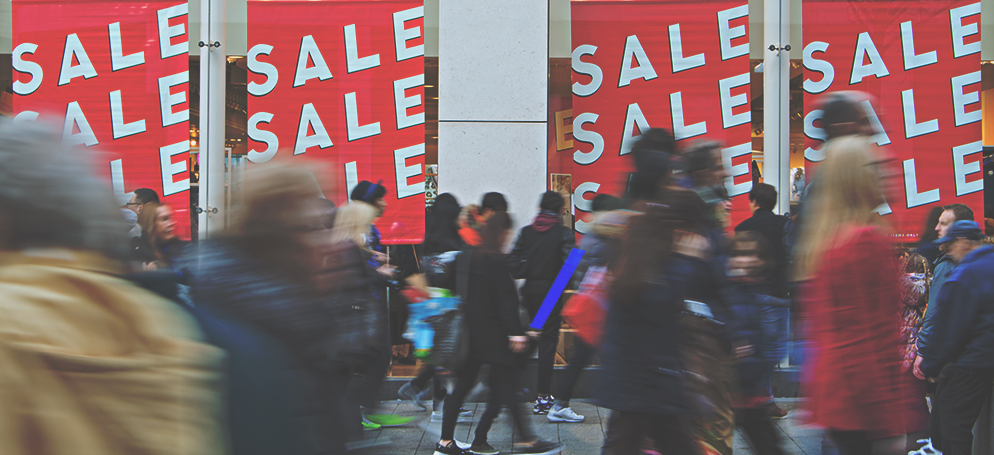
Is Black Friday the global opportunity it appears to be?
Retailers in the UK and US will be busy preparing for this weekend’s major sales events that kick off the Christmas spending period. Last year it was reported that 83% of US retailers and 70% of UK retailers took part in Black Friday promotions. Furthermore, in 2017, UK sales grew faster in November than December for the first time, with a growing proportion of these sales taking place online.
But across the globe, is this trend mirrored? We surveyed our LIMEs (Local In-Market Experts) around the world to understand their spending habits at this time of year. We asked if Black Friday is ‘a thing’ in their country or whether other seasonal shopping events are more likely to have them parting with their hard-earned cash.
Black Friday around the world
Black Friday has grown from a one-day sales event in the US to encompass a whole weekend of discounts and promotions in many countries. The elongation continued with the creation of Cyber Monday on the day following the weekend and in recent years retailers frequently run a full seven days of deals.
In many countries, Amazon is credited (or blamed) for expanding the popularity of this shopping period and for increasing competitiveness among online retailers not wanting to lose sales to the multinational behemoth.
Eighty per cent of our respondents from across the globe said that Black Friday occurred in their country, but sentiment toward the event varied. While it may exist in numerous regions, many consumers aren’t necessarily planning to take advantage of the sales.
Singles’ Day (sometimes known as Double 11 Day) is more popular than Black Friday in China and is growing significantly across Asia. This 24-hour online sales period was created to encourage singletons to buy items for themselves. Online retailer, Alibaba reported that, in 2018, 180,000 brands took part in Singles’ Day and transactions were made in 230 countries and regions. Outside of China, a significant amount of sales come from Japan, the US, South Korea, Australia and Germany on this day.
In Mexico, El Buen Fin is an annual nationwide shopping event that takes place during a weekend in November. Many Mexicans get paid twice a month, ordinarily on the 1st and the 15th, so the sale takes place around the 15th and consumers will wait to purchase during this time. Inspired by Black Friday, this event was originally initiated in 2011 by the Council of Business Coordination and government to drive economic growth.
In other markets, the critical winter sale period is still between Christmas and New Years Day and January sales are also popular.
November shopping habits
While Black Friday is planned for the time of year where many of us will start thinking about Christmas shopping, just over half of the LIMEs surveyed who shop during the Black Friday weekend said they would focus on both gifting to others and purchasing for themselves.
For retailers, consideration of the actual promotion is important; nearly all our respondents stated the offer would need to be at least 30% off the usual price for them to consider purchasing during this period. In addition to a good percentage off discount, free shipping is a critical sway in all regions.
What are consumers likely to purchase? In almost every region we surveyed around the globe, technology is a primary focus – particularly discounted phones and other personal electronics – closely followed by fashion.
How can retailers ensure offer periods drive incremental growth?
With retailers running increasingly competitive deals around this time, finding the balance between attracting consumers with heavily discounted products and retaining a healthy profit margin can be tricky.
Intent to purchase during the Black Friday weekend is higher than the rest of the year and basket abandonment, on average, is lower. During this time consumers are already in a buying mindset, and the sheer volume of people online and on the high street means retailers can reach a larger audience. There’s also a sense that you need to be ‘in it to win it’ as if you’re a retailer not in this space, the chances are your competitors will be.
During the promotional period, retailers can create a sense of urgency and excitement via regular social media announcements and PPC techniques such as countdown ads.
Olly Dixon, Paid Media Strategist at Oban, says: “For paid activity, Black Friday presents a good opportunity to maximise exposure before, during and after the sale period. One way to drive incremental sales is to leverage remarketing activity to target engaged users who have previously added to the cart or shown interest. We can be more aggressive with the budget during a promotional period, targeting more engaged audiences and the most profitable products, leading to higher ROI.”
A loyal customer may wait to re-purchase a favourite product when it’s heavily discounted, but Black Friday can drive new customer acquisition too. Attaining a new customer who may continue to purchase in the coming months or years is one way to create incremental growth.
To learn more about how Oban has helped retailers make the most of the Black Friday shopping period, get in touch.